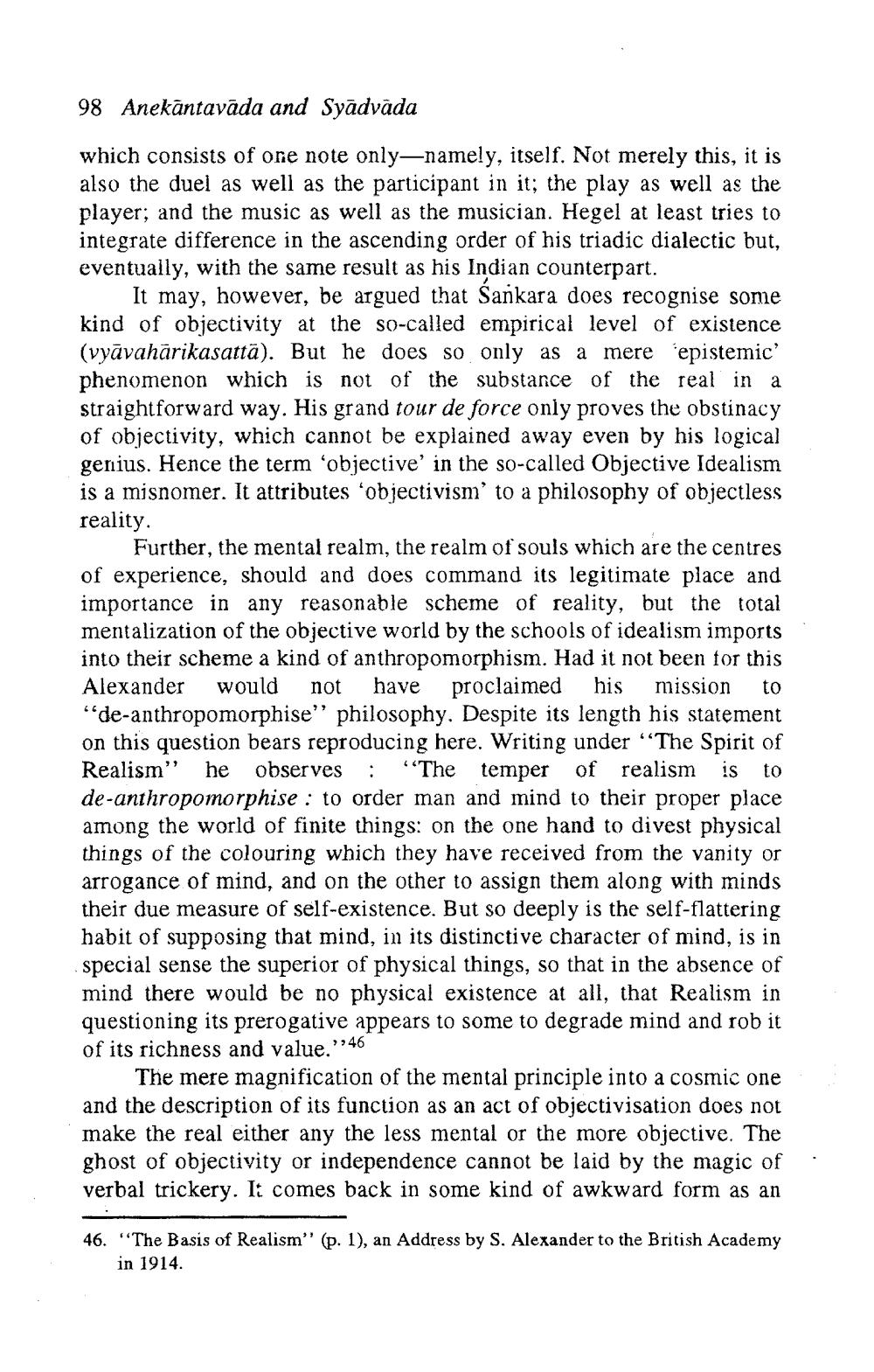________________
98 Anekāntavāda and Syādvada
which consists of one note only_namely, itself. Not merely this, it is also the duel as well as the participant in it; the play as well as the player; and the music as well as the musician. Hegel at least tries to integrate difference in the ascending order of his triadic dialectic but, eventually, with the same result as his Indian counterpart.
It may, however, be argued that Sankara does recognise some kind of objectivity at the so-called empirical level of existence (vyāvahārikasattā). But he does so only as a mere epistemic' phenomenon which is not of the substance of the real in a straightforward way. His grand tour de force only proves the obstinacy of objectivity, which cannot be explained away even by his logical genius. Hence the term 'objective' in the so-called Objective Idealism is a misnomer. It attributes objectivism' to a philosophy of objectless reality.
Further, the mental realm, the realm of souls which are the centres of experience, should and does command its legitimate place and importance in any reasonable scheme of reality, but the total mentalization of the objective world by the schools of idealism imports into their scheme a kind of anthropomorphism. Had it not been for this Alexander would not have proclaimed his mission to “de-anthropomorphise" philosophy. Despite its length his statement on this question bears reproducing here. Writing under “The Spirit of Realism" he observes: "The temper of realism is to de-anthropomorphise : to order man and mind to their proper place among the world of finite things: on the one hand to divest physical things of the colouring which they have received from the vanity or arrogance of mind, and on the other to assign them along with minds their due measure of self-existence. But so deeply is the self-flattering habit of supposing that mind, in its distinctive character of mind, is in special sense the superior of physical things, so that in the absence of mind there would be no physical existence at all, that Realism in questioning its prerogative appears to some to degrade mind and rob it of its richness and value.':46
The mere magnification of the mental principle into a cosmic one and the description of its function as an act of objectivisation does not make the real either any the less mental or the more objective. The ghost of objectivity or independence cannot be laid by the magic of verbal trickery. It comes back in some kind of awkward form as an
.
46. "The Basis of Realism" (p. 1), an Address by S. Alexander to the British Academy
in 1914.




